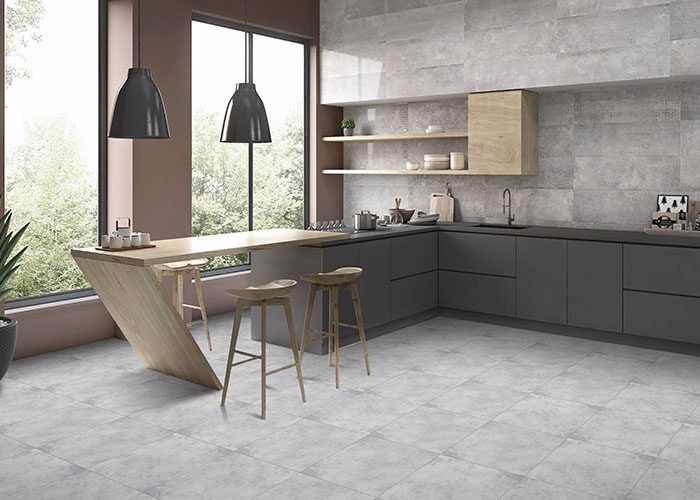In the ever-evolving world of kitchen design, staying ahead of the curve is essential for professionals in the field. Areas with gorgeous sceneries such as Colorado are becoming well-populated and Denver kitchen designers are working hard to keep up with the demand for kitchen renovations and modernization.
As we move further into 2024, several trends are shaping the way kitchens are conceptualized, designed, and utilized. From innovative technology integration to sustainability-driven choices, the landscape of kitchen design is experiencing a significant shift. The global market for smart kitchen appliances is valued at over $30 billion, highlighting the importance of staying updated with the latest trends in the industry.
Table of Contents
Technological Integration
Smart Appliances and IoT Connectivity
One of the most prominent trends in kitchen design for 2024 is the integration of smart appliances and Internet of Things (IoT) connectivity. Smart refrigerators, ovens, and other kitchen gadgets are becoming increasingly popular as they offer convenience, efficiency, and enhanced functionality.
These appliances can be controlled remotely via smartphone apps, allowing users to monitor and adjust settings even when they are away from home. Additionally, IoT connectivity enables appliances to communicate with each other, creating a seamless and interconnected kitchen experience.
Voice-Activated Controls
Voice-activated controls are another technological innovation making waves in kitchen design. With voice assistants like Amazon Alexa and Google Assistant becoming ubiquitous in homes, many kitchen appliances now feature voice-activated commands.
Users can simply speak commands to control their appliances, adjust settings, or even search for recipes hands-free. This trend not only adds a layer of convenience but also appeals to consumers looking for intuitive and futuristic kitchen solutions.
Sustainable Materials and Practices
Eco-Friendly Materials
As environmental consciousness continues to grow, there is a rising demand for sustainable materials in kitchen design. Designers are increasingly opting for eco-friendly materials such as reclaimed wood, bamboo, recycled glass, and low-VOC paints.
These materials not only reduce the environmental impact but also add a unique aesthetic appeal to the kitchen space. Additionally, advancements in sustainable manufacturing processes have made it easier for designers to source environmentally friendly materials without compromising on quality or style.
Energy-Efficient Appliances
In line with sustainability efforts, energy-efficient appliances are becoming a staple in modern kitchen designs. Energy Star-rated appliances, which are designed to consume less energy and water, are gaining popularity among eco-conscious consumers.
From refrigerators and dishwashers to stove and lighting fixtures, energy-efficient options are available across various kitchen appliance categories. Not only do these appliances help reduce utility bills, but they also contribute to minimizing the carbon footprint of the household.
Multi-Functional Spaces
Kitchen-Living Integration
The concept of multi-functional spaces is redefining traditional kitchen layouts in 2024. Increasingly, kitchen designers are incorporating elements of living and dining areas into the kitchen space, blurring the boundaries between different areas of the home.
Open-plan kitchens with integrated living spaces allow for seamless interaction and socialization while cooking, dining, and entertaining. This trend caters to the modern lifestyle, where the kitchen serves as the hub of activity and a central gathering place for family and guests.
Work-from-Home Integration
Another emerging trend is the integration of work-from-home spaces within the kitchen area. With remote work becoming more prevalent, homeowners are seeking ways to create dedicated workspaces that blend seamlessly with the kitchen environment.
Designers are incorporating built-in desks, charging stations, and storage solutions into kitchen designs to accommodate the needs of remote workers. This integration of work and home life reflects the evolving dynamics of modern living and emphasizes the importance of flexibility and adaptability in kitchen design.
Bold Colors and Textures
Vibrant Color Palettes
2024 is witnessing a departure from neutral color schemes towards bolder and more vibrant palettes in kitchen design. Designers are embracing rich hues such as deep blues, emerald greens, and terracotta oranges to add character and personality to kitchen spaces. These bold colors are being used on cabinetry, backsplashes, and accent walls to create focal points and visual interest. Additionally, the use of colorful appliances and accessories is becoming increasingly popular, allowing homeowners to inject their style into the kitchen design.
Textural Elements
In addition to bold colors, the texture is playing a crucial role in defining the aesthetic of modern kitchens. From matte finishes and textured tiles to natural stone countertops and textured wood grains, designers are incorporating a variety of tactile elements to add depth and dimension to kitchen surfaces. These textural contrasts create visual intrigue and tactile interest, elevating the overall design aesthetic and creating a sensory-rich environment in the kitchen.
Final Thoughts
As we navigate through 2024, the world of kitchen design is undergoing a remarkable transformation, driven by technological advancements, sustainability initiatives, and evolving lifestyle preferences.
By embracing trends such as technological integration, sustainable practices, multi-functional spaces, and bold colors and textures, designers can create kitchens that are not only visually stunning but also functional, efficient, and tailored to the needs of modern homeowners. As the demand for innovative kitchen solutions continues to grow, staying abreast of these trends will be essential for professionals looking to excel in the competitive landscape of kitchen design.





